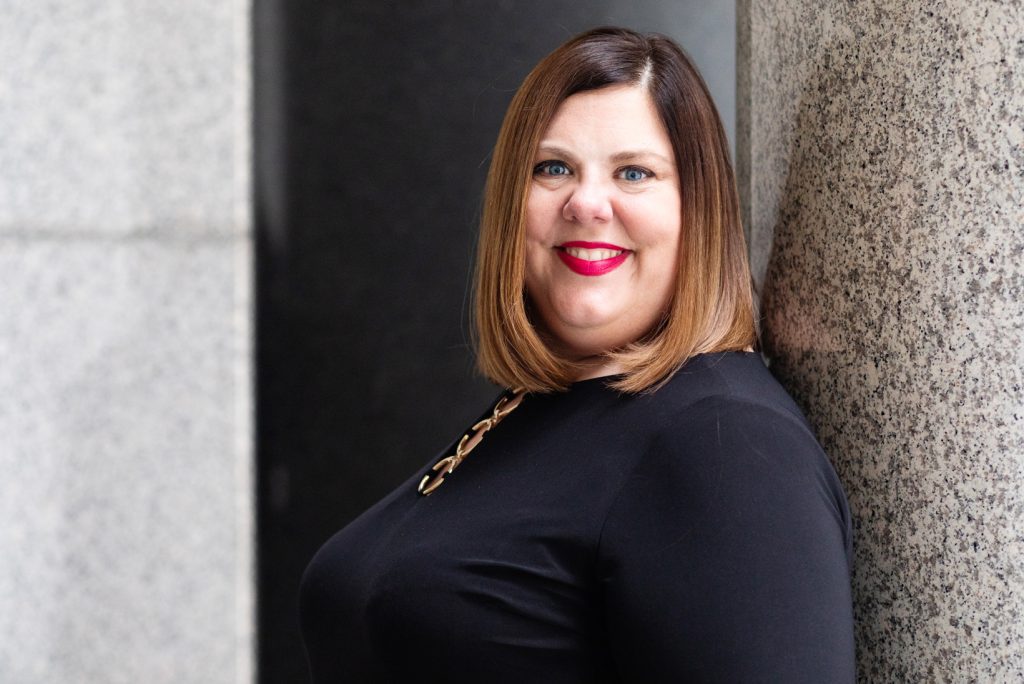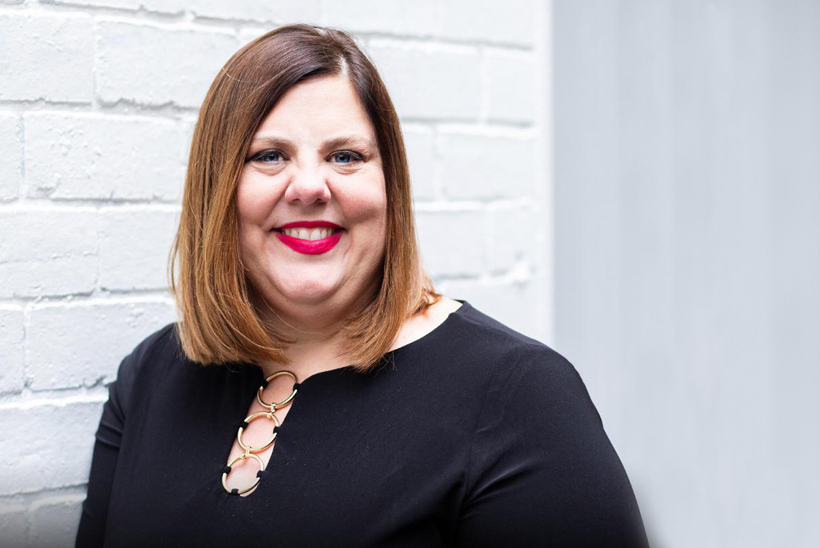August 14, 2023
Walk down the supermarket aisles and ‘Australian Made‘ logos litter the shelves – an encouragement to support local businesses making local products.
Common in all countries and on steroids during periods of economic uncertainty, such a philosophy extends to all sectors and services – even regional farmers on Valentine’s Day.
Yet in the dog-eat-dog world of technology outsourcing, local preference is currently being tested to the limit as end-user organisations – both public and private sector – succumb to short-term thinking to the detriment of homegrown providers.
“We hear from a lot of large technology outsourcing companies in Canberra who approach us and ask, ‘do you want to feed us?’ – my response is always, ‘no, we don’t want to feed you. We want to win the work’,” said Victoria Kluth, CEO of Araza.
“This is even more important post-pandemic, government projects should be going to Australian companies. All we hear is ‘buy local, buy local’ but it isn’t always translating that way in technology.”

According to Kluth – founder of a Melbourne-based technology services consultancy – copious amounts of tax revenue is being lost due to IT services contracts going offshore.
“And that can’t be made up in more charges to local companies such as Araza,” she cautioned. “We need to look at where we are spending our money and that has to come first.”
Kluth acknowledged that at a state level, governments have maintained strong support of homegrown technology providers during the tender process and continue to positively contribute to the local ecosystem.
“But at federal level, it’s a different story,” Kluth noted. “I saw on a tender recently that one of the criteria was, ‘do you work with a local Australian company?’ – this went out to prime suppliers of which we are one of them, plus all of the bigger companies.
“Now the approach has changed to can you at least give a little chunk of business to a local provider?”
In other words, the default is shifting towards an acceptance from some parts of the public sector that outsourcing partners are not local but hopefully the multi-nationals that inevitably win the work can hopefully throw the homegrown bunch a bone.
“The tax money is still going offshore in those instances,” Kluth said. “We care about our economy whether as a homegrown provider or as a citizen. How are we going to pay for the last three years of spending as a country without supporting local companies?”
An area in which Kluth – recognised as an EY Entrepreneurial Winning Women in 2019 – becomes flummoxed is when public or private sector organisations award outsourcing work to multi-national providers based on “international knowledge”.
“The people on the ground are the people on the ground,” she questioned. “It’s Australian in that sense and it doesn’t matter what company they work for because contractors jump between companies. So what are you buying? And where is your money going? Those are key questions to ask given the current climate.”
“All we hear is ‘buy local, buy local’ but it isn’t always translating that way in technology”
But this issue reaches a higher level than the soldiers fighting in the technology trenches, enterprise-level CEOs are being judged on quarterly, half-yearly and yearly results. A successful and healthy Australian economy is in the interests of all concerned but in most instances, short-term gains trump long-term collective action.
“They’re being judged on short-term gains,” Kluth noted. “It’s no surprise deals are made that aren’t necessarily the best for the economy or even shareholders. We’re in that cycle and I don’t judge them for making those decisions because they have a responsibility to their organisation and their shareholders.
“But for government that responsibility means constituents and the right thing for all constituents is a healthy economy, 100%”
With a strong sense of pragmatism, Kluth was quick to state that as a business, Araza wins and loses a fair share of deals.
“Obviously we don’t win everything that we bid on and for very good reason because there’s a lot of great technology companies in Australia,” she stated.
Onshore vs. Offshore
The business model of enterprise organisations outsourcing some IT projects and activities to technology providers that execute such work in a foreign country is not new.
Pros and cons exist for any company determining a sophisticated offshoring model with the common consensus among homegrown players centred around not fighting the inevitable, rather focusing on the work available locally instead.
“Do you try and fight an offshore model? No,” Kluth stated. “Our focus is around determining what projects will be carried out onshore and then ensuring we differentiate strongly enough to compete.”
But that can be hard when full-scale offshoring models kick into gear.
In some cases, global system integrators (GSIs) and large-scale consultancy firms are motivated to win work then deliver as much offshore as possible – that’s how the true money is made.
Whether of Indian, American or European origin, most GSIs struggle to make money onshore due to an out of control rate structure. Hence a desire to win projects locally before moving the work offshore and then bundling other offerings to expand footprint and gain greater control within an account.
Or a smaller project is poorly delivered on the grounds that to be successful, the keys to the kingdom must be exchanged – opening up the scope of work in the process.
Homegrown providers stand little chance of competing in those scenarios.

“There’s still a lot of work to be done onshore provided you have the ability to go and find the work,” Kluth added.
Araza – which celebrates its 10th anniversary this year – specialises in implementing innovative solutions across public and private sectors. Expertise spans cloud, digital, automation and cyber security, in addition to enterprise applications, FinOps and quality engineering.
Industry recognition extends to Deloitte Technology Fast50, Westpac Business of Tomorrow and Financial Review Fast 100 acknowledgement, alongside Telstra Business and Optus myBusiness awards among others.
“We just have to prioritise creating innovative new product offerings that are specific and hit a certain niche – there is an onus to keep reinventing,” Kluth added. “For example, our cloud optimisation offerings and FinOps suite of products are aimed at organisations trying to save money in this current environment.”
Engagement becomes transactional
Irrespective of changing onshore and offshore models, Kluth noted additional challenges impacting the outsourcing market – namely the industry becoming more transactional post-pandemic.
The shift to remote working has triggered a change in communication between buyers and suppliers, impacting the sales process as a result. Conversations are via email or video call and seemingly little alternative exists for a market now used to engaging from behind a screen rather than in front of a person.
“Building relationships is a lot more difficult today,” Kluth acknowledged. “Because clients have become more transactional, we’ve had to become more transactional in response.
“That’s where we’re at right now and we discussed this in our team meeting recently. Before we might have only bid for certain types of work but now we have to be open.”
One such example is Araza being open to placing a person for four weeks into a company – the business is not an agency nor has it entertained such projects in the past.
“But if we think we can help our client then let’s be open to it,” she said. “If we can meet someone, learn a little more about our client and understand their successes, every little bit is going to help us build a bigger picture.”
“How are we going to pay for the last three years of spending as a country without supporting local companies?”
Loyalty has also been impacted as key decision makers change roles and good work gets lost in the revolving door of people churn. Alternatively however, tenders previously considered off the table are now back in contention.
“The difficulty comes in actually getting into the sales mix in the first place, especially given everything is now done transactionally through vendor managers and remote working,” Kluth noted.
“When a tender came out we used to think, ‘okay, do we have a relationship?’ – then go through the usual criteria qualifiers. Now we’re open to competing given the rules of engagement have changed.”
In looking back on a decade of business, Kluth said Araza has essentially been six different companies throughout the process and likely three since COVID-19 alone. The need for reinvention is clear for an entrepreneur shaped by the mentality of – if you can’t get through the door, how do you go through the window?
For homegrown providers in Australia, there was an old way of doing things, now there is a new way. The modelling is different and the approach has changed.
“I’m by no means an economic genius that’s for sure but market factors are changing so quickly,” Kluth highlighted. “Unemployment figures change, interest rates are down here and up there.
“All these factors keep changing which means that the economists at big companies keep changing which means we have to keep changing. When I started this business it was as simple as, ‘just go out and sell, Victoria’. Now you can only create a five-year plan if you’re a time traveller.”
Despite such vocality, market fundamentals remain and cream always rises to the top.
“We have to get back to basics and ensure we’re providing quality, which we know we are,” Kluth accepted. “I’m lucky to have a sales team completely without ego – they are humble, agile and adapt to these transitions. This is one area in which we shine.”
Inform your opinion with executive guidance, in-depth analysis and business commentary.